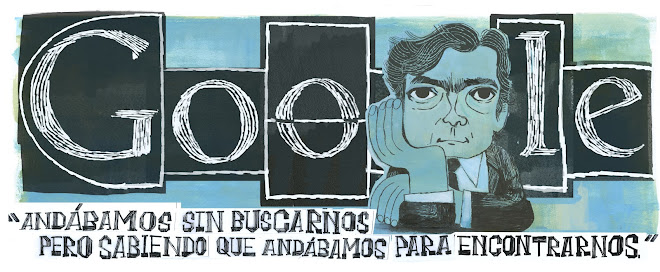Image Courtesy: Google Doodle
Julio Cortázar (August 26, 1914 – February 12, 1984) stands as an Argentine novelist, who later became a naturalized French citizen. His literary contributions encompassed novels, short stories, essays, and translations, solidifying his stature as a significant figure. Cortázar is recognized as one of the founding figures of the Latin American Boom, a literary movement that profoundly impacted Spanish-speaking readers and writers across the Americas and Europe.
Early Life
Julio Cortázar was born on August 26, 1914, in Ixelles, a municipality located in Brussels, Belgium. Biographer Miguel Herráez reveals that his parents, Julio José Cortázar and María Herminia Descotte, were Argentine nationals. His father, attached to the Argentine diplomatic service, was stationed in Belgium.
Cortázar’s birth occurred during a significant historical period, with Belgium under occupation by German troops led by Kaiser Wilhelm II. In response to the circumstances, Cortázar’s family relocated to Zürich, where María Herminia’s parents awaited them in a neutral environment. The family spent the next couple of years in Switzerland, moving between Zürich and Geneva before briefly residing in Barcelona. Ultimately, the Cortázars settled outside Buenos Aires by the conclusion of 1919.
Notable Works
Cortázar’s literary legacy is rich and varied, marked by numerous short stories compiled in volumes such as “Bestiario” (1951), “Final del juego” (1956), and “Las armas secretas” (1959). In 1967, a collection of stories, thoughtfully selected from these volumes and translated into English by Paul Blackburn, emerged as “End of the Game and Other Stories,” later renamed “Blow-up and Other Stories.” Over the course of his lifetime, Cortázar produced four novels: “Los premios” (The Winners, 1960), “Hopscotch” (Rayuela, 1963), “62: A Model Kit” (62 Modelo para Armar, 1968), and “Libro de Manuel” (A Manual for Manuel, 1973). Gregory Rabassa translated the latter three novels into English, with Elaine Kerrigan handling the translation for “Los premios.” Additionally, two other novels, “El examen” and “Divertimento,” although composed before 1960, were only published posthumously.
Death
In 1984, Cortázar’s life journey came to an end in Paris. He was laid to rest in the cimetière du Montparnasse. While leukemia was officially cited as the cause of his demise, there are sources that suggest he passed away due to AIDS, stemming from a blood transfusion he received. Cortázar’s enduring influence on literature and culture continues to resonate, cementing his place in the pantheon of literary luminaries.
On 26 August 2014, a Google Doodle was created to celebrate Julio Cortázar’s 100th Birthday.

